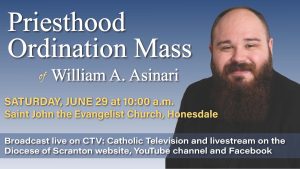LOUISVILLE, Ky. (OSV News) – Just days after the U.S. Conference of Catholic Bishops met June 12-14 for their Spring Plenary Assembly in Louisville, the bishops finally achieved the threshold needed to pass their national pastoral framework to guide ministries with youth and young adults.
Despite overwhelming support, the pastoral framework had originally failed by two votes to cross the two-thirds majority threshold needed to pass at the bishops’ meeting June 14 after too many individual bishops had already left for their home dioceses by the time the vote was taken that morning.
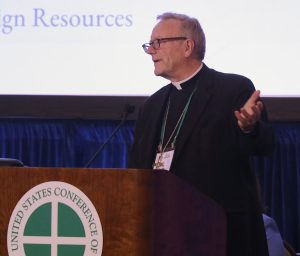
After canvassing the bishops eligible to vote, 10 more votes in favor had been secured by late June 17, allowing “Listen, Teach, Send: A National Pastoral Framework for Ministries with Youth and Young Adults” to finally pass, according to a June 18 USCCB news release.
As of the close of June 17, the vote on “Listen, Teach, Send” was 188 in favor, four against and four abstentions.
Bishop Robert E. Barron of Winona-Rochester, Minnesota, chair of the bishops’ Committee on Laity, Marriage, Family Life and Youth, presented the pastoral framework that will aid pastors, ministry leaders and families. During his June 13 presentation, the bishop said his committee had engaged in “concerted listening” with youth and young adults, pastoral ministers, families and bishops.
“What we heard was a strong desire to develop a framework that was streamlined and straightforward — one that could be used not just by pastors and pastoral ministers, but also by families and by young people themselves who can evangelize and guide their peers to Christ,” said Bishop Barron. “We heard a desire to name and address issues including sexuality, mental health, disaffiliation, racial justice, polarization and the desire of so many young people to transform our society.”
Bishop Barron went on to share with the bishops, “Most importantly, we heard that we cannot be silent or inactive when it comes to the engagement and accompaniment of youth and young adults.”
He said the committee’s hope is that the framework — modeled on the story of the disciples’ encounter with Jesus on the road to Emmaus found in Luke’s Gospel — will offer “new life” to youth ministers.
Bishop Barron said to the bishops that the 1993 World Youth Day gathering in Denver and the release of two national frameworks on youth and young adults around 30 years ago constituted the “last major moment for our church’s work with these age groups. Since then, frankly, enthusiasm has waned while disaffiliation has risen.”
The committee hopes that “Listen, Teach, Send” together with Pope Francis’ encouragement in the 2018 Synod on Young People and his 2019 post-synodal apostolic exhortation “Christus Vivit” can produce “another watershed moment,” Bishop Barron said. The framework also includes a letter to young people from the bishops imitating Pope Francis’ letter in “Christus Vivit” with a summons to “missionary discipleship and Christ-like leadership.”
Bishop Barron described the new framework as “a summons to the church to renew her engagement with youth and young adults” imitating Jesus on the journey to Emmaus.
Like Jesus in the Gospel story, “We are called deeply to listen to the realities facing young people … to teach in a new way … and finally, to send youth and young adults forth,” as they follow God’s call in their mission to transform the world, he said.
Michal Horace, who leads the Archdiocese of Louisville’s Office of Youth and Young Adults, told The Record, the archdiocesan newspaper, that his office is “excited” about this new framework.
“It’ll invigorate the field and remind folks that everyone is a youth minister,” he said in an interview prior to the framework’s passage. “The best thing is it takes what we learned — from the synod on youth, the fruit of ‘Christus Vivit,’ V Encuentro — and brings it all together.”
Horace said the story of the road to Emmaus has long been his model for doing youth ministry. He was pleased to see that the national framework is modeled on the Gospel story as well, he said.
“Jesus was such a great model. He listened first to figure out their situation and what they needed,” he said. “It’s a great model for all of us.”
According to the USCCB, the promulgation of “Listen, Teach, Send” comes on the fifth anniversary of Pope Francis’ message to young people in “Christus Vivit.”
In a June 18 statement, Bishop Barron said the Emmaus story provided the inspiration and guide to the development of the pastoral framework and was a story Pope Francis also frequently emphasized as a model for ministry.
“Jesus gave us a wonderful example of how to accompany youth and young adults on their paths of life through the experience of the disciples on the road to Emmaus,” Bishop Barron said.
“Like the Lord on the road to Emmaus, we first listen to the stories, joys, and concerns of those we encounter along the way. We respond with dynamic, kerygmatic (effectively sharing the core message of Jesus Christ), and heartfelt teaching that shares the light of Christ and seeks to bring about a conversion of heart,” he said. “And finally, we set the conditions in our ministries and families to send the young forth to follow God’s call for their lives, so that they might transform the world with love.”
Prior to “Listen, Teach, Send,” the U.S. bishops pastorally addressed youth, young adult, and college young adult ministries in “A Vision for Youth Ministry” (1976); “Empowered by the Spirit” (1985); “Sons and Daughters of the Light” (1996); and “Renewing the Vision” (1997).
The bishops’ 2023 national plan for Hispanic/Latino ministry “Missionary Disciples Going Forth with Joy” also addressed Hispanic/Latino youth and young adult ministries.

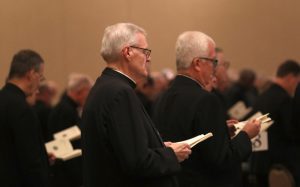
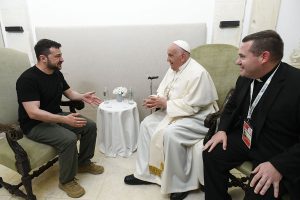
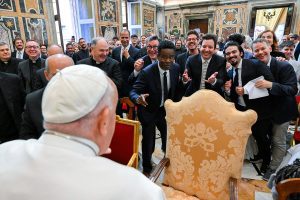
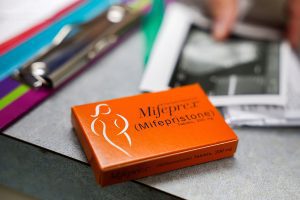
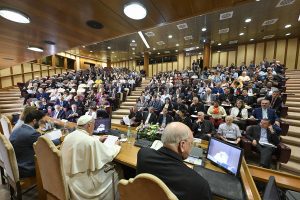
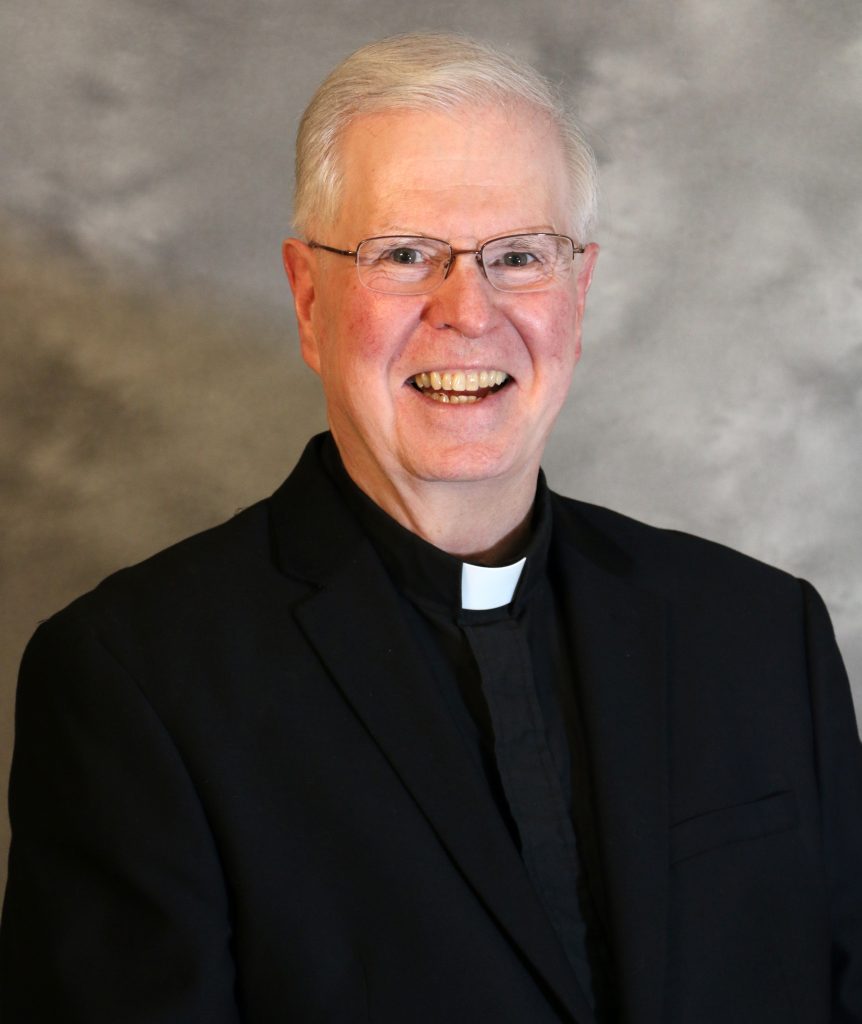
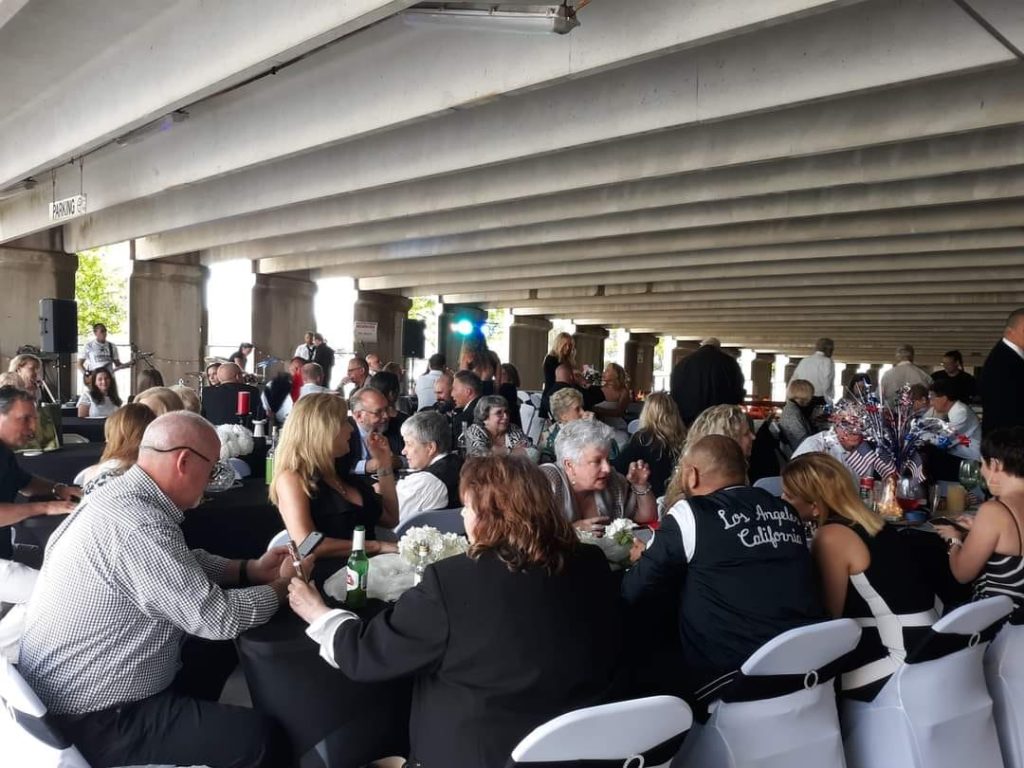 HAZLETON (June 18, 2024) – On Friday, June 14, 2024, more than 75 people came together in Hazleton to enjoy ‘A Night Under the Stars,’ an event organized by Catholic Social Services of the Diocese of Scranton.
HAZLETON (June 18, 2024) – On Friday, June 14, 2024, more than 75 people came together in Hazleton to enjoy ‘A Night Under the Stars,’ an event organized by Catholic Social Services of the Diocese of Scranton.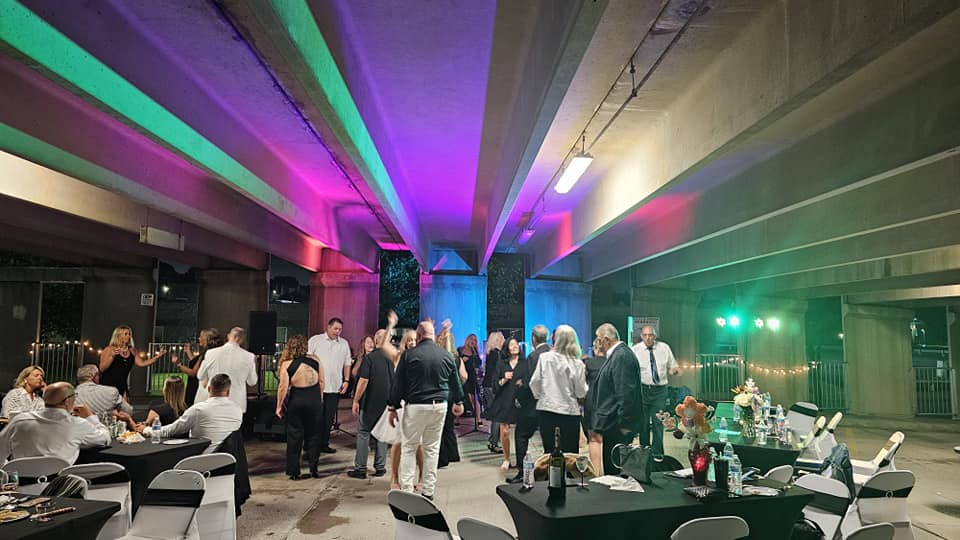 Attendees were treated to a four-course meal at the event, which included entertainment by ‘Six Shots.’
Attendees were treated to a four-course meal at the event, which included entertainment by ‘Six Shots.’